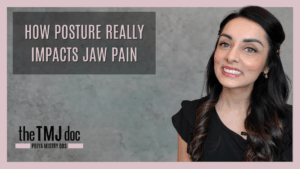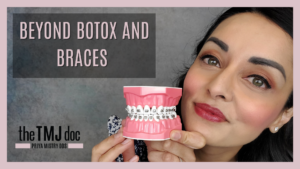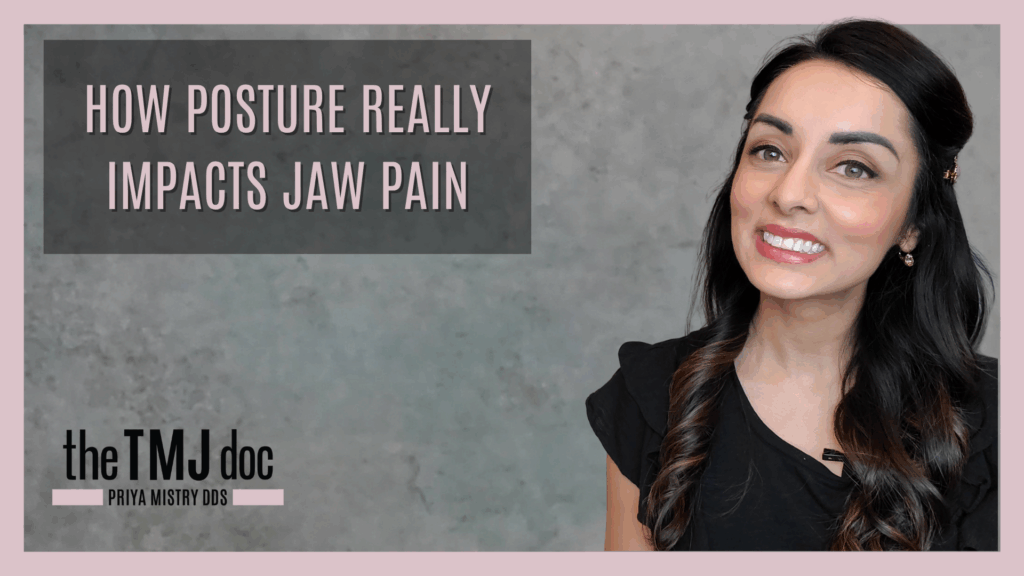In the Unclenched podcast episode “Botox for TMJ? Permanent Retainers? We Answer Your Questions!” hosts Dr.’s Priya and Alex dive into some of the most pressing questions about jaw health. Drawing from their clinical experiences, they share thoughtful insights into the complexities of Temporomandibular Joint (TMJ) issues, offering listeners valuable guidance on treatment options and preventative care.
Treating Locked Jaws and Clicking Sounds
The episode kicks off with Dr. Mistry recounting a case involving Rob, a patient with a locked jaw and displaced disc. His treatment plan required a 7–9-month journey, incorporating orthotics and therapy to gradually restore jaw function. Dr. Priya emphasizes that jaw clicking, often dismissed as harmless, can be a precursor to serious issues like locking or dislocation. Using Myotronics neuromuscular software, the team analyzes jaw movements in detail, tailoring personalized treatment plans to each patient’s unique needs.
Their message is clear: don’t ignore jaw clicking. Early intervention can prevent complications and ensure better long-term outcomes.
The Botox Debate
Botox is a popular, quick-fix solution for TMJ pain, but Dr.’s Alex and Priya urge caution. They discuss the potential risks of Botox, particularly for individuals with sleep apnea, as the treatment can exacerbate symptoms. They also note FDA warnings linking Botox to botulism toxin-related complications.
Instead of relying on Botox, the hosts advocate for more holistic and lasting solutions, such as orthotics and myofunctional therapy. These approaches address the root causes of TMJ pain, offering more sustainable relief without the risks associated with Botox.
Orthodontics and Retainers
Orthodontic treatment can sometimes aggravate TMJ symptoms, such as jaw clicking. Dr.’s George and Mistry highlight the importance of monitoring jaw health during orthodontic care and recommend specific appliances, like the pivot appliance, for managing these issues.
They also discuss the impact of permanent retainers on jaw tension, cautioning against their use in cases where tongue movement is restricted. Poor tongue posture and movement can lead to neck and jaw tension, making myofunctional exercises an essential part of maintaining jaw health.
Physiotherapy for TMJ Pain
The hosts explore a range of physiotherapy treatments for TMJ pain, including:
- TENS (Transcutaneous Electrical Nerve Stimulation): To relax the jaw muscles and alleviate tension.
- Ultrasound Therapy: For deep tissue stimulation and pain relief.
- Cold Laser Therapy: To reduce inflammation and promote healing.
However, they stress the importance of activating muscles without causing fatigue, ensuring that therapy promotes healing rather than exacerbating discomfort.
Hormonal Factors in TMJ Pain
Hormonal changes can play a significant role in TMJ discomfort, particularly in women. Dr.’s Alex and Priya explain that fluctuations during menstrual cycles can intensify pain, highlighting the need for tailored approaches to manage symptoms during these times.
Looking Ahead
The Unclenched podcast continues to be a valuable resource for anyone navigating jaw pain and TMJ issues. By addressing listener questions and sharing their expertise, Dr.’s Priya and Alex help demystify complex topics and empower patients to seek effective, personalized care.
In future episodes, they promise to tackle even more listener inquiries, shedding light on the intricacies of diagnosing and treating TMJ-related conditions. If jaw health is a concern for you, this episode serves as an insightful starting point for understanding your options and taking proactive steps toward relief.







